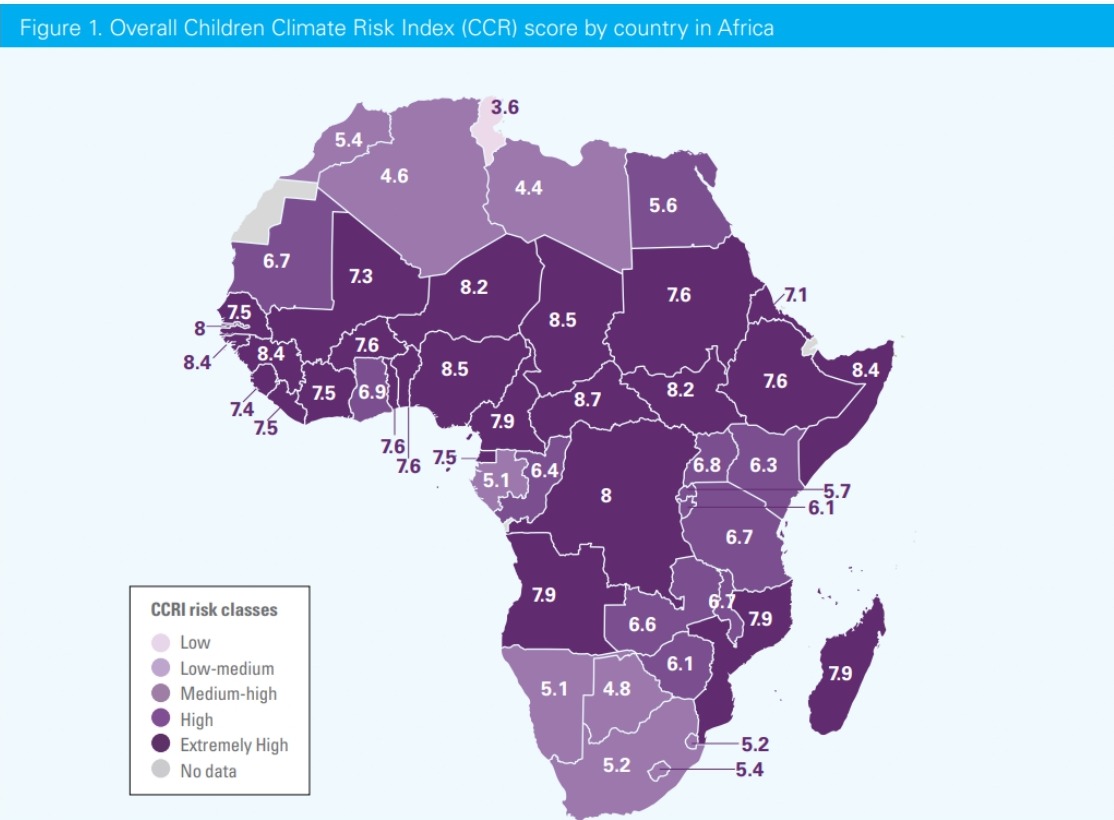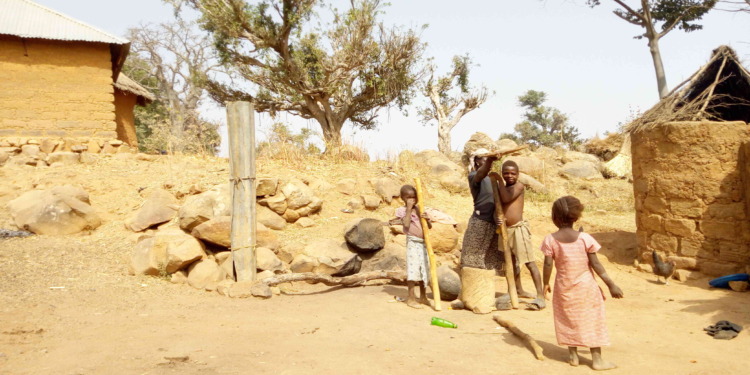Over the last decade, the impacts of climate change have become more visible everywhere in the world. Everybody is at risk, especially children.
When it comes to what is driving these changes, the Intergovernmental Panel on Climate Change’s (IPCC) conclusion is clear: The warming is induced by human activities.
July 2023 was the hottest month ever recorded, right after June 2023, which also broke the same record. As a consequence, droughts, storms, and heat waves have been a daily challenge.
Countries and people who don’t contribute to climate change nearly as much as others are also the ones who are paying the highest price. African countries, in particular, will witness the devastating environmental impacts of our actions the most, even though they are the least responsible for it.
Predictions show that by 2100, Sub-Saharan Africa might lose up to 8.6% of its GDP annually if the global temperatures reach the 3°C increase (compared to pre-industrial levels).
Limiting global warming is therefore imperative, and quick, collective actions are needed.
Africa is currently holding two major climate conferences: The Africa Climate Week 2023, which is taking place on September 4-8, and the Africa Climate Summit, from September 4 to September 6.
Both conferences will take place in the capital of Kenya, Nairobi, and will address the next steps needed to develop effective collective strategies to successfully tackle the climate crisis.
In September 2023, UNICEF and the United Nations Environment Programme (UNEP) published a report called, “Time to Act: African children in the climate change spotlight,” and the results are disheartening: Not only does climate change affect African people more than others, but, among them, children will be the ones suffering the effects of climate change the most.
BREAKING: Children in Africa are among the most at risk of the impacts of climate change but are neglected by the key climate financing, according to our latest report.
It’s time to act, #ForEveryChild. https://t.co/vVE0h4Ebre
— UNICEF Africa (@UNICEFAfrica) September 1, 2023
The analysis uses the global Children’s Climate Risk Index (CCRI), an index developed by UNICEF that shows the number of children affected by the environmental crisis, both in the long and short run.
Children in all African countries, the report found, are exposed to the environmental effects of human-made climate change. However, 39 out of the 49 countries for which data is available are at a “high” or “extremely high” risk.

The environmental calamities children will face differ depending on where they are in Africa. Kids in the North of the continent will experience more water scarcity and air pollution, whereas those in the East and West will be more exposed to vector-borne diseases, heatwaves and riverine flooding. Soil and water pollution will be experienced regardless of the geographical area.
The more time we lose, the bigger the price will be, both socially and economically. As the UNICEF report stresses, governments must focus on providing “quality, climate-resilient essential services” to help cope with the distress of facing such events.
Related articles: Africa Climate Summit: Diverse Visions for a Resilient Continent | The Horn of Africa: Still in Trouble | Conversations of Hope: Talking to Kids About Climate Change and The Environment
Because children are “Africa’s greatest natural resource” in the fight against climate change, investing and involving them in climate actions is imperative. The reality, however, is disheartening, because the interests of children and young people are rarely taken into consideration when addressing climate change.
Only 2.4% of the Multilateral Climate Funds (MCFs) — responsible for funneling funding from developed to developing nations — is directed towards projects that involve or are addressed to children, the “Time to Act” report found, suggesting the following five actions to better include children in the conversation:
- Increase the coverage and “climate resilience” of social sector systems to better equip them to help kids and young people experiencing climate-related difficulties.
- Provide “adequate funding” to address the climate crisis and its consequences. At the same time, developing countries must make an effort to invest more money in projects aimed at ensuring a better future for children.
- Educate young people about climate change and possible solutions so that they will be able to contribute more extensively in the future.
- Let them participate in the climate discourse — climate change, after all, will be their biggest problem.
- Prioritize decarbonization to reduce the pollution of the environment. We are making an impact on the world, and it is not positive.
Children and young people are aware that the climate crisis will be their problem more than older people’s. They are fighting, protesting in the streets, suing governments. They are screaming to make their voices heard. It is time we hear them.
Editor’s Note: The opinions expressed here by the authors are their own, not those of Impakter.com — In the Featured Photo: African children doing house chores in Nigeria, 2019. Featured Photo Credit: Wikimedia Commons.










